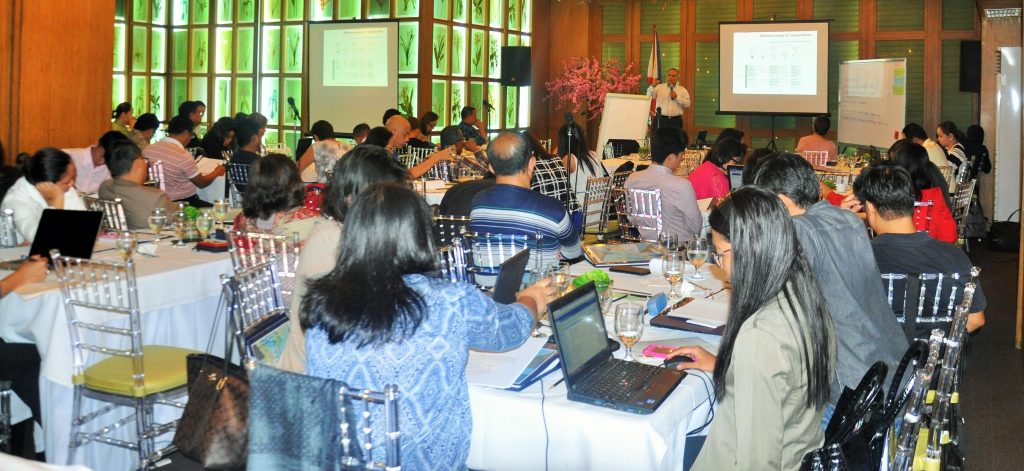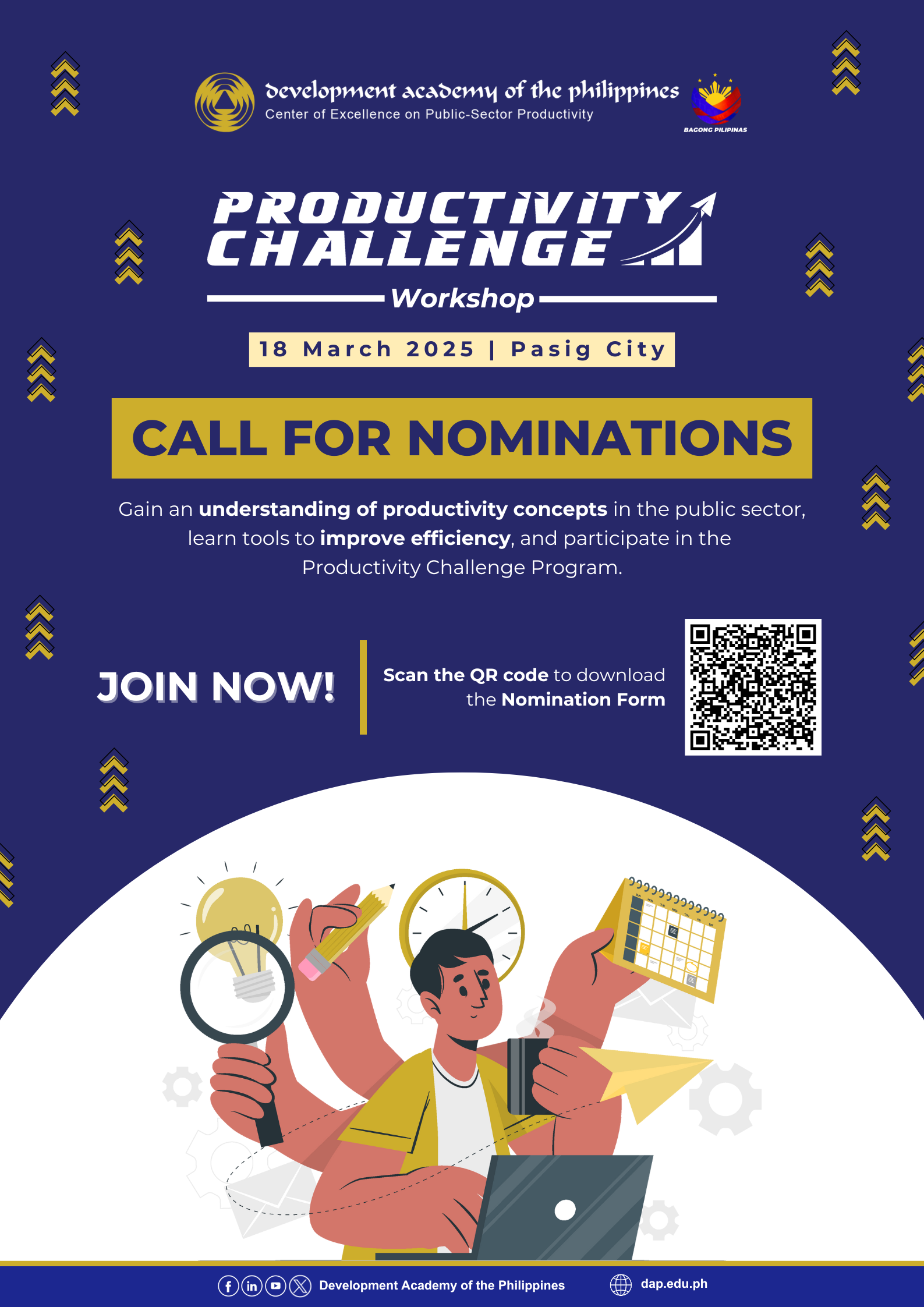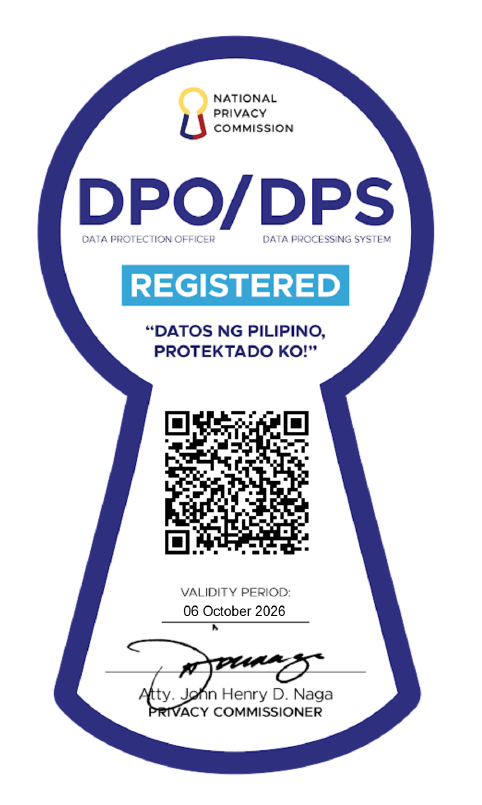
The Modernizing Government Regulations or MGR Program, spearheaded by the Development Academy of the Philippines in partnership with the National Economic and Development Authority, got a jolt during the recent Training Course on Regulatory Review and Management, a training course provided for government agencies with regulatory functions.
The training, the second under the MGR Program after the first held in February this year, is part of the program that aims to enhance the process by which agencies formulate regulations governing both business-related and citizen-related transactions. Under this program, the Academy aims to harmonize related initiatives, develop a quality regulatory management system or QRMS, and institutionalize tools such as a regulatory impact assessment to encourage better and more responsive regulations that will facilitate growth.
Regulatory experts
Held from May 31 to June 3 at the Astoria Hotel in Pasig, the latest training course featured the deputy director general of the Malaysian Productivity Corporation, Dato’ Abdul Latif Bin Haji Abu Seman, an expert in regulatory management who served as the resource person during the activity.
The activity was able to take a look at where the Philippines is now in terms of efficiency in applying government procedures. While the country has been experiencing impressive economic growth with a 5.8 percent increase in its gross domestic product in 2015, the business community has been quick to emphasize that sustaining this requires the continued pursuit of economic reforms. This should include, among others, efforts that will improve the country’s ranking in the World Bank’s Ease of Doing Business ratings, which, as of 2016, has slipped six notches to 103 from its 2015 rank of 97.
Still the go-to reference
The World Bank Ease of Doing Business report, in essence, examines the regulatory environment of 189 countries as it applies to setting up and operating a business. Although its reliability has come into question as of late, with immediate past Finance Secretary Cesar Purisima criticizing the report’s “erratic methodological changes year after year,” such reports remain the go-to references of investors and businessmen. Abdul Latif himself acknowledged this during the discussions.
DAP President Antonio D. Kalaw Jr., while speaking during the event’s closing ceremonies, also emphasized the “need for one concerted effort” that will bring to the forefront the need for a national policy on regulatory reform that will be imbedded in the Philippines’ governance agenda.
Not enough
Kalaw said that while there have been several initiatives taken to improve the Philippines’ ranking in terms of doing business, they are not enough and this is where the MGR Program comes in.
The Academy, through its team of experts that would be engaging business owners and trade groups as well as relevant government agencies to determine areas for improvement, is targeting the reduction in 2016 of the regulatory burden currently borne by five priority industries. These industries are food production, food processing, food service, tourism and transportation. The DAP is also seeking the reduction of these businesses’ administrative costs under this scheme.
Such an initiative will also provide inputs on the development of a QRMS and an oversight body that will ensure that regulations governing various facets of business remain coherent, responsive and facilitative of growth.




